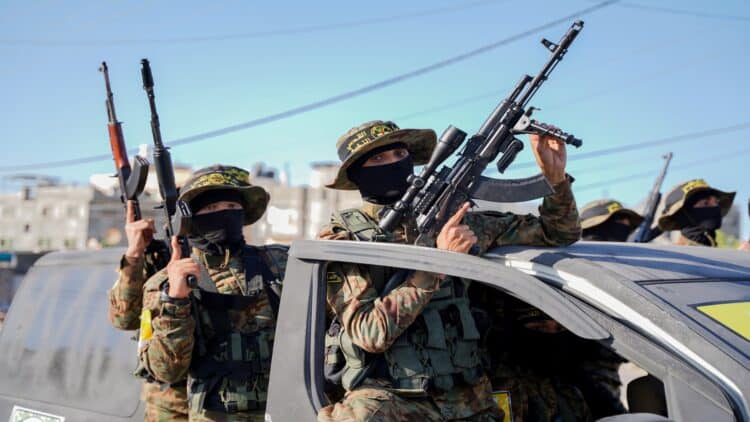On Monday, tens of thousands of workers and students throughout Italy went on a nationwide general strike in support of Palestinians in Gaza and disrupted transportation, schools, and ports throughout Italy. The 24-hour strike that was arranged by the grassroots unions hit the public and the private sectors, and big cities such as Rome and Milan were characterized by a lot of delays and cancellations.
Nationwide strike disrupts transportation and education systems
Italy’s grassroots unions called for a 24-hour general strike in both public and private sectors, including public transportation, trains, schools and ports, according to Daily Sabah. The strike caused disruptions across the country, with long delays for national trains and limited public transport in major cities, including Rome and Milan. The transit of goods was slowed or partially blocked by workers’ sit-ins and rallies in Italy’s main ports of Genoa and Livorno.
A number of schools across Italy were closed as student organizations and unions denounced “the inertia of the Italian and EU governments.” More than 20,000 people gathered in front of Rome’s central station to protest the worsening humanitarian crisis in Gaza. Thousands of workers and students across Italy joined a general strike and widespread demonstrations on Monday in solidarity with the Palestinians living in Gaza, according to Euronews.
Major ports experience significant operational slowdowns
In Genoa, in northwest Italy, some protesters waved the Palestinian flag during early morning gatherings around the port. Further down the coast in the Tuscan city of Livorno, an entrance to the port was blocked by protesting workers. Italian dockworkers say they are seeking to prevent Italy from being used as a staging post for the transfer of arms and other supplies to Israel.
Workers demand government action on the Gaza humanitarian crisis
“If we don’t block what Israel is doing, if we don’t block trade, the distribution of weapons and everything else with Israel, we will not ever achieve anything,” said Walter Montagnoli, national secretary of the CUB union, marching in Milan with protesters. “The Palestinian people continue to give us yet another lesson in dignity and resistance,” said Ricky, a protester in Genoa from a group called the Autonomous Port Workers’ Collective.
In Bologna, more than 10,000 took to the streets, according to local police, while protesters also took place in Turin, Florence, Naples and Sicily. Regional train services to Rome faced delays and cancellations because of the strikes, but the Metro underground railway ran as normal. Most of the Metro lines in Milan, Italy’s financial capital, were also operating. Airlines were not affected by the strike action.
Public opinion shifts toward Palestinian recognition
Transport Minister Matteo Salvini tried to play down the impact of the protests that he claimed were organized by a far-left union group. “Italy must come to a standstill today,” said Federica Casino, a 52-year-old worker protesting with the students for Gaza’s “dead children and destroyed hospitals.” “Italy talks but does nothing,” she told Agence France-Presse.
According to a recent survey by polling company Only Numbers, published by La Stampa newspaper, almost 64% of Italians consider the humanitarian situation in Gaza “very serious” and almost 41% want Italy to recognize a Palestinian state. Francesca Tecchia, 18, was protesting “for the first time” because “what is happening (in Gaza) is too important.”
The widespread Italian strikes demonstrate growing public pressure on the Meloni government to take stronger action regarding the Gaza crisis. While transportation and educational disruptions affected millions of citizens, the protests reflect deepening concern over Italy’s perceived inaction on Palestinian recognition and arms trade restrictions. As domestic opinion increasingly favors Palestinian statehood, the government faces mounting challenges in balancing international alliances with public sentiment demanding humanitarian intervention.


